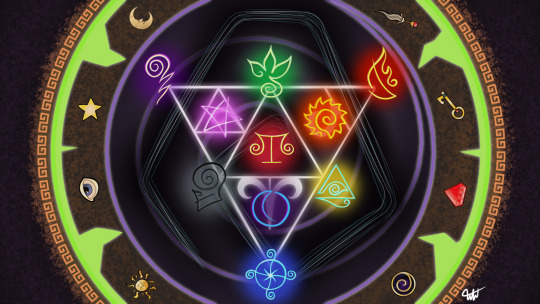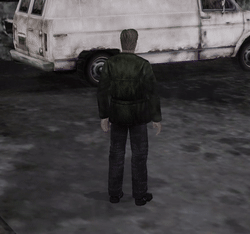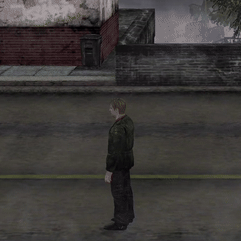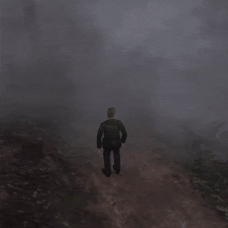Text
Happy 20th anniversary, Hot Wheels Acceleracers

I'm feeling so old and we are still waiting for a continuation. Jokes aside, thank you for making our childhood very memorable, Acceleracers 🥰

48 notes
·
View notes
Text

Need to clean my keyboard, got a dust bunny problem
12K notes
·
View notes
Text
I hope the "What if Disco Elysium was about a witch finding her cat in the mountains" post never leaves the gaming discourse vernacular. It will never not be funny to me bc it's got all the Gamer Entitlement™ levels of CoD bros throwing hissy fits about "woke" shit but instead of being couched in far right reactionism it's the exact kind of "Kingdom of Conscience" style liberal outrage at anything with conviction and beliefs that DE waxed on about. Like even chuds who get mad that the game calls you out for being racist interact with the themes of DE better and understand them more than Cat Lady did.
58K notes
·
View notes
Text
Wizard101 Pov: you're scrolling on spiralblr some point around arc 2
0 notes

👀 lail-brighteyes Follow
I'm never going on a field trip again THEY PUT ME IN A FUCKIBG ZOO
🌈 gayrizzleheim Follow
A field trip to a zoo doesn't seem too bad??
👀 lail-brighteyes Follow
No you misheard me. I'm not at the zoo, I'm in the zoo. As in, I'm in one of the cages and people are taking pictures of me.
35 notes

🏡 chillin-like-a-titon Follow
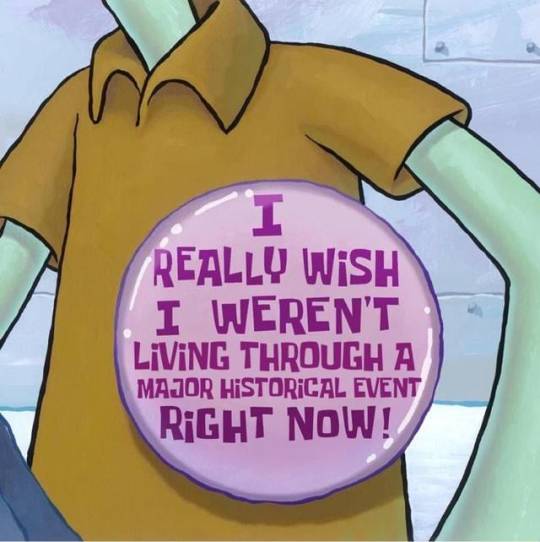
Can there stop being attacks on the spiral for FIVE FUCKING MINUTES????
140.1k notes

✅️ wiz-polls-daily Follow
8,341 notes

🪦 is-malistaire-dead-yet Follow
YES.
🪦 is-malistaire-dead-yet Follow
ARE YOU FUCKING KIDDING ME
33.2k notes

🌋 spawnofhellhound Follow
Idk if I'm just dumb but I truly don't understand colonization in the spiral. Like you travel through time and space and through the stars and find an entirely different world doing just fine and you say, "that's mine now" ???????
🕶 beyondbonetts-deactivated
spiralblr simplifying and overexageratting other worlds' problems. why am I not surprised.
🐠 luckyhooker Follow

🕶 beyondbonetts-deactivated
NOT WHAT WE'RE CALLED
12.3k notes

⚰️ wolf-deathsinger Follow
stopped by the back of ravenwood for the first time in a while and malorn ashthorn was there still lmao I guess it makes sense for the younger students to be taught there so they don't have to go all the way to nightside but what a flashback
☠️ malice-and-ash Follow
If you think I'm mentally prepared to take on the real world after Ravenswood you got another thing coming. I'm guarding that pit til I die.
⚰️ wolf-deathsinger Follow
ok first of all didnt know you have spiralblr hi second of all does....does ambrose know you're still squatting there teaching the younger students?
☠️ malice-and-ash Follow
Titan knows. I don't think that man leaves his office. I get a sack of gold each month but I think gamma is in charge of finance.
🧙♂️ wizardstrong456 Follow
The owl? That's why my student loans got fucked up 🤦♂️
🪸 coral-oceanswimmer Follow
ew, what is a specieist doing here
99 notes

🕶 beyondbonetts-deactivated
I am sick and tired of all you pretend activists calling me marleyboner. It's literally a slur. Idc if you think it's funny to shit on worlds you deem ~problematic~ but disrespecting an entire world's name like that is unacceptable.
🪩 spiral-gayte Follow
this you?

👑 amul3twh0re Follow
i love posts where you can see exactly why the op is deactivated
30.4k notes

🦀 underdaseamen Follow
listen i have nothing against wizards visiting celestia but if you do can you please use a mount that makes sense for the area. yall have no idea how terrifying it is when you leave your house with your crab friends and a fucking horse starts swimming toward you.
6 notes

🐷 randolf-spellshine Follow
about to go fight this wizard in the spiral cup ill post the video later
🐷 randolf-spellshine Follow
i got my ass beat bruh im not posting that shit
1,243 notes

🦡 baddestbadger-inavalon Follow

4,371 notes

🦋 ladyorielfan23 Follow
Why we should have expected the y**ng w*z*rd destroying Azteca (part 1)
yw crit under the cut
i have to put something here but i do not have the energy to write an entire essay from ladyorielfan23's perspective so imagine a super angry rant here about how problematic the young wizard is omg why would you say that ladyorielfan23 also my apologies for fucking up the lore in the last dashboard simulator i have no idea what this game's plot is
356 notes
·
View notes
Text
I love how the Ignition era recontextualized the Toa Mata's power and prowess as warriors.
Like the matoran, they were created for one task. They were intensively traned in that task. And they were told that this task was more important than them. And then they were packed away like tools in a toolshed, never knowing when - or even if - there'll be need for their use.
They were created to be things. Or rather:
Incarnations of elements, of phenomens from nature, were thought be things to be used. How cruel. How foolish.
233 notes
·
View notes
Photo



Some recent horror/dark fantasy art!
Instagram - https://www.instagram.com/jjcanvas_art/ Twitter - http://twitter.com/JJcanvas Artstation - https://www.artstation.com/artist/jjcanvas Facebook - https://www.facebook.com/JJcanvasArt
1K notes
·
View notes
Text

haha hey look at this magazine I found, wow isn't that crazy?


73 notes
·
View notes
Text
i think about merle's and the wizard's relationship often. merle himself is probably traumatized from all that he had gone through, we all forget bro is old as hell. possibly centuries old. all jokes aside, i'm sure he does feel regret for putting the wizard through so much. maybe he did so because he himself didn't have it in him to fight anymore.
do you just ever wonder how he was feeling when the wizard was declared enemy of the spiral? marleybone and polaris are members of the council of light. imagine the great turmoil that this caused in there. the CoL would be obligated to help them hunt the wizard given that they're allies, but they're all conflicted. confused. the wizard had only done good, right? why are they an enemy now?
merle hasn't personally heard from the wizard in years, he's just piecing things together based off the stuff he hears about. he doesn't know their relationship with dasein. all he knew was that he was the embodiment of nothing. he's heard that there's two brand new worlds that spawned out of nowhere. he's worried, but the wizard had outgrown him long ago. there's nothing he can do now, even if he wanted to. a part of him feels like he failed them.
121 notes
·
View notes



